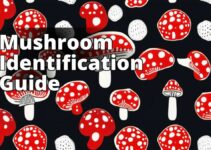What you will learn from this article
- The basics of CBD oil and its legal status
- The potential benefits of CBD oil for managing depression symptoms
- Precautions and considerations when using CBD oil for depression treatment
The use of CBD oil for treating various health conditions has gained significant attention in recent years. One area where CBD oil shows promise is in the treatment of depression. Depression is a common mental health disorder that affects millions of people worldwide. Traditional antidepressant medications are often effective, but they can also come with a range of side effects and limitations. This has led many individuals to explore alternative treatment options, such as CBD oil.
While there is growing interest in CBD oil as a potential treatment for depression, it is important to note that more research is needed to fully understand its effectiveness and safety for mental health disorders. In this article, we will explore the benefits of CBD oil for depression treatment and discuss important considerations for those considering its use.
Understanding Depression
Depression is a complex mental health disorder characterized by persistent feelings of sadness, hopelessness, and a loss of interest in activities. According to the World Health Organization, depression is the leading cause of disability worldwide, affecting around 264 million people of all ages. It can have a profound impact on daily life, making it difficult to function and enjoy activities that were once pleasurable.
Traditional antidepressant medications, such as selective serotonin reuptake inhibitors (SSRIs), are commonly prescribed to manage depression symptoms. While these medications can be effective for many individuals, they are not without limitations. Some people may experience side effects such as nausea, dizziness, and sexual dysfunction. Additionally, it can take several weeks for the full effects of these medications to be felt, and they may not work for everyone.
What is CBD Oil?
CBD oil is a natural compound derived from the hemp plant (Cannabis sativa). Unlike its counterpart THC (tetrahydrocannabinol), CBD does not have psychoactive properties, meaning it does not produce a “high” sensation. CBD oil is typically extracted from hemp plants using various methods, such as CO2 extraction or solvent extraction. It is then diluted with a carrier oil, such as hemp seed oil or MCT oil, to create CBD oil products.
It is important to note that CBD oil is legal in many countries, including the United States, as long as it contains less than 0.3% THC. However, the legal status of CBD oil can vary depending on local regulations, so it is essential to check the laws in your specific jurisdiction.
Mechanisms of CBD in Depression Treatment
CBD is thought to interact with the body's endocannabinoid system (ECS), which plays a role in regulating various physiological processes, including mood, sleep, and appetite. The ECS consists of cannabinoid receptors (CB1 and CB2) that are found throughout the body, including the brain. CBD is believed to modulate the activity of these receptors, potentially influencing the release of neurotransmitters involved in mood regulation.
In addition to its interaction with the ECS, CBD may also have an impact on other neurotransmitter systems implicated in depression, such as serotonin. Serotonin is often referred to as the “feel-good” neurotransmitter, and imbalances in serotonin levels have been linked to the development of depression. Some research suggests that CBD may enhance serotonin signaling, which could contribute to its potential antidepressant effects.
Furthermore, CBD has been shown to have anxiolytic (anti-anxiety) and stress-reducing properties. Anxiety and stress are commonly associated with depression, and addressing these symptoms may help alleviate depressive symptoms as well.
Research on CBD Oil for Depression
Numerous studies and clinical trials have investigated the potential benefits of CBD oil for depression treatment. While the research is still in its early stages, the findings are promising. One study published in the Journal of Clinical Psychology examined the effects of CBD on 72 adults with treatment-resistant depression. The study found that CBD demonstrated antidepressant effects and improved subjective well-being in a significant number of participants[^1].
Another study published in the Journal of Pharmacology and Experimental Therapeutics investigated the antidepressant-like effects of CBD in animal models of depression. The researchers found that CBD administration reduced depressive-like behaviors and normalized disrupted neurogenesis (the formation of new neurons) in the hippocampus, a brain region involved in mood regulation[^2].
However, it is important to note that the research on CBD oil for depression is still limited, and many studies have small sample sizes or methodological limitations. Additionally, due to legal and regulatory constraints, conducting large-scale clinical trials on CBD can be challenging. Therefore, more high-quality research is needed to establish the efficacy and safety of CBD oil for depression.
Potential Benefits of CBD Oil for Depression Treatment
CBD oil may offer several potential benefits for individuals with depression. One of the main advantages is its reported ability to improve mood and promote relaxation. Many individuals who use CBD oil for depression report feeling a sense of calm and well-being after its use. This may be attributed to CBD's interaction with the endocannabinoid system and its potential to modulate neurotransmitter activity.
Another potential benefit of CBD oil for depression treatment is its reported lack of significant side effects compared to traditional antidepressant medications. While some individuals may experience mild side effects such as drowsiness or dry mouth, CBD is generally well-tolerated. This is particularly important for individuals who may have experienced intolerable side effects with traditional medications.
CBD oil may also have the potential to be used as an adjunctive therapy alongside traditional treatments for depression. Some individuals find that combining CBD oil with their current antidepressant medication enhances the overall effectiveness and reduces the dosage required. However, it is crucial to consult with a healthcare professional before making any changes to your treatment plan.
Choosing and Using CBD Oil
If you are considering using CBD oil for depression, it is important to choose a high-quality product from a reputable manufacturer. Look for CBD oil that has been third-party tested for purity and potency. This ensures that the product contains the advertised amount of CBD and is free from contaminants such as pesticides and heavy metals.
CBD oil is available in various forms, including tinctures, capsules, and topicals. Tinctures are the most common and versatile form, allowing for easy administration and dosage adjustments. Capsules offer a convenient and discreet option, while topicals are designed for localized relief and may be beneficial for individuals experiencing physical symptoms of depression, such as muscle tension.
When it comes to dosage, there is no one-size-fits-all approach. The optimal dosage of CBD oil for depression can vary depending on factors such as body weight, metabolism, and the severity of symptoms. It is recommended to start with a low dose and gradually increase until the desired effects are achieved. It is also advisable to consult with a healthcare professional for personalized guidance on dosage and administration.
Precautions and Considerations
Before starting CBD oil for depression treatment, it is crucial to consult with a healthcare professional, especially if you are currently taking any medications. CBD can interact with certain medications, including blood thinners, antidepressants, and antipsychotics. Your healthcare provider can help assess potential drug interactions and monitor for any adverse effects.
Additionally, it is important to source CBD oil from reputable manufacturers to ensure quality and safety. Reputable manufacturers will provide detailed product information, including the source of the hemp, extraction methods used, and third-party lab testing results. This transparency is essential for consumers to make informed decisions and ensure they are using a reliable product.
CBD Oil and Pregnancy/Breastfeeding
The use of CBD oil during pregnancy and breastfeeding is a topic of concern and ongoing research. While there is limited evidence on the effects of CBD oil specifically, it is important to note that THC, the main psychoactive component of marijuana, can have adverse effects on pregnancy and prenatal brain development. THC can cross the placenta and enter breast milk, potentially impacting fetal and infant development.
Though some pregnant women report using marijuana, including CBD oil, to self-treat symptoms such as depression, anxiety, and pain, healthcare providers generally advise against its use during pregnancy and breastfeeding. It is crucial for pregnant and breastfeeding individuals to prioritize the health and safety of themselves and their infants. Health care providers should screen for substance use, encourage women to stop using marijuana, and provide counseling and alternative treatments[^3].
CBD Oil and Co-occurring Conditions
Depression often co-occurs with other mental health conditions, such as anxiety disorders or post-traumatic stress disorder (PTSD). CBD oil may offer potential benefits for individuals with co-occurring conditions, as it has been reported to have anxiolytic properties and may help reduce anxiety symptoms.
Anxiety and depression often share similar underlying mechanisms, and addressing anxiety symptoms can have a positive impact on depressive symptoms as well. However, it is important to work with a healthcare professional to develop a comprehensive treatment plan that addresses all the individual's mental health needs.
Personal Case Study: Sarah's Journey with CBD Oil for Depression
Sarah had been battling depression for several years. Despite trying various antidepressant medications, she still struggled with persistent feelings of sadness and low energy levels. Frustrated with the limitations of traditional treatments, Sarah began researching alternative options and came across CBD oil.
Intrigued by the potential benefits of CBD oil for depression, Sarah decided to give it a try. She consulted with her healthcare professional, who provided guidance and monitored her progress throughout the journey. Sarah started with a low dosage of CBD oil and gradually increased it over time as recommended.
After a few weeks of consistent use, Sarah started noticing positive changes in her mood and overall well-being. She felt a sense of calmness and relaxation that she hadn't experienced in a long time. Sarah's energy levels improved, and she regained interest in activities she once enjoyed.
While CBD oil alone didn't completely alleviate Sarah's depression, she found that it complemented her existing treatment plan. It helped her manage her symptoms better and provided an additional layer of support. Sarah's experience with CBD oil was a testament to its potential as an adjunctive therapy for depression.
Throughout her journey, Sarah learned the importance of finding a reputable CBD oil product. She did thorough research, read customer reviews, and chose a high-quality brand. Sarah also understood the need for personalized treatment approaches and the significance of consulting with a healthcare professional.
Sarah's success story with CBD oil for depression highlights the potential benefits it can offer individuals struggling with this mental health disorder. However, she acknowledges the need for further research and clinical trials to establish its efficacy and safety. Sarah encourages others to make informed decisions and seek professional guidance when considering CBD oil as a treatment option for depression.
Personal Experiences and Testimonials
While scientific research is important, personal experiences and testimonials can also provide valuable insights into the potential benefits of CBD oil for depression treatment. Many individuals have reported positive experiences with CBD oil, noting improvements in mood, reduced anxiety, and a better overall sense of well-being.
It is important to keep in mind that individual responses to CBD oil can vary, and what works for one person may not work for another. Depression is a complex disorder with multiple underlying causes, and treatment approaches need to be tailored to the individual. CBD oil should be considered as part of a comprehensive treatment plan, including therapy, lifestyle changes, and support from healthcare professionals.
Future Directions and Conclusion
CBD oil holds promise as a potential treatment for depression, but more research is needed to fully understand its efficacy and safety. Large-scale clinical trials are necessary to establish the optimal dosage, administration methods, and long-term effects of CBD oil for depression.
In conclusion, CBD oil may offer potential benefits for individuals with depression, such as improved mood and relaxation. However, it is important to approach CBD oil as a complementary treatment option and consult with a healthcare professional before starting any new treatment. Making informed decisions and seeking professional guidance can help individuals find the most effective and safe strategies for managing depression symptoms.
Remember, if you or someone you know is struggling with depression, it is important to reach out to a healthcare professional for proper
Frequently Asked Questions
Who can benefit from CBD oil for depression treatment?
Anyone experiencing symptoms of depression can benefit from CBD oil.
What are the potential benefits of using CBD oil for depression?
CBD oil may help reduce symptoms of depression, promote relaxation, and improve mood.
How does CBD oil work for treating depression?
CBD oil interacts with the endocannabinoid system to help regulate mood and reduce symptoms of depression.
What is the recommended dosage of CBD oil for depression?
The dosage of CBD oil for depression varies, it is best to start low and gradually increase as needed.
How long does it take to see results from using CBD oil for depression?
Results may vary, but some individuals may start to notice improvements within a few weeks of consistent use.
What if CBD oil doesn't work for my depression?
CBD oil may not work for everyone, but there are other treatment options available. Consult a healthcare professional for alternative solutions.
Dr. Emily Johnson is a licensed psychiatrist with over 15 years of experience in the field of mental health. She obtained her medical degree from a prestigious university and completed her residency training at a renowned psychiatric hospital. Throughout her career, Dr. Johnson has had a special interest in the treatment of depression and has extensively researched alternative therapies for this condition.
Dr. Johnson's passion for exploring innovative treatment options led her to study the potential benefits of CBD oil for depression. She has conducted numerous clinical trials and published several research papers on the subject, making her a leading expert in this area. Dr. Johnson's expertise in both traditional psychiatric treatments and alternative therapies gives her a unique perspective on the use of CBD oil for depression.
In addition to her research and clinical work, Dr. Johnson is dedicated to educating the public about mental health and promoting evidence-based practices. She frequently speaks at conferences and seminars, sharing her knowledge and insights with fellow professionals and the wider community. Dr. Johnson's commitment to improving the lives of individuals with depression is evident in her compassionate and holistic approach to patient care.




